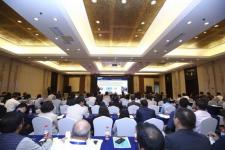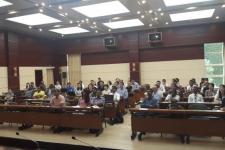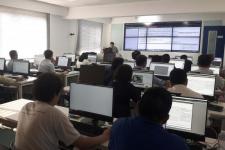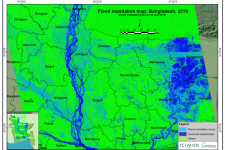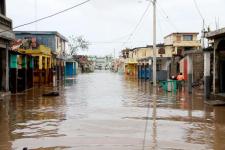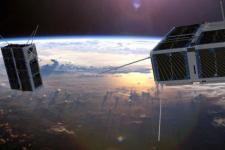Dear readers,
We're glad to share with you the September 2019 UN-SPIDER Monthly Updates.
In September, our UN-SPIDER Beijing office conducted its annual United Nations International Conference on Space-based Technologies for Disaster Risk Reduction and marked the office's tenth anniversary. For the occasion, we released an anniversary publication that highlights the work of the office over the past ten years. The publication is available online.
Last month, we also published two new step-by-step procedures for downloading, processing and mapping space-based information. These Recommended Practices explain how to use digital elevation data for storm surge coastal flood monitoring, and how to detect mudslides and associated floods using Sentinel-1 data.
A list of all our Recommended Practices is available here.
We would like to make use of this occasion to remind you that self-funded applicants can apply until 18 October to participate in our UN-SPIDER Bonn International Conference “Space-based Solutions for Disaster Management in Africa: Challenges, Applications, Partnerships”. The event will take place 6-8 November 2019. The deadline to apply for those seeking funding has elapsed on 30 August.
Below the updates, you'll also find an events calendar with upcoming conferences, workshops and seminars organized by the community.
Enjoy the read!
UN-SPIDER at a glance
- 13/09/2019
The Sendai Framework for Disaster Risk Reduction 2015-2030 recognizes the importance of a multi-hazard approach to disaster risk reduction and makes explicit reference to promoting real-time access to reliable data making use of space and in situ information under Priority for Action 1, “Understanding disaster risk”. Such access is key to developing an understanding of disaster risk in all its... Read more
Country/Region mentioned: - 12/09/2019
On 10 September 2019, 60 participants of the ninth annual UN-SPIDER Beijing conference and officials from Chinese government organizations attended the International Charter “Space and Major Disasters” project manager training.
The training was co-organized by the UN-SPIDER Beijing office and the National Disaster Reduction Centre of China (NDRCC) and hosted at the facilities of NDRCC in... Read more
Country/Region mentioned: - 12/09/2019Regional Support Offices involved: International Water Management Institute (IWMI)
In the run up to this year's UN-SPIDER Beijing conference on 11 and 12 September, 30 participants from around Asia attended the international training programme on space-based technologies for disaster risk assessment from 5 to 9 September, which was hosted at the Regional Centre for Space Science Technology Education in Asia and the Pacific (RCSSTEAP) based at Beihang University, Beijing. The... Read more
Country/Region mentioned:
News from our Regional Support Offices
- 25/09/2019Regional Support Offices involved: International Centre for Integrated Mountain Development (ICIMOD)
In July 2019, Bangladesh, India and Nepal experienced floods and landslides during the South Asian monsoon season. On the night of the 17 July, the Jamuna river in Bangladesh broke through the embankment, inundating over 40 villages and displacing more than 200,000 people. Experts of the International Centre for Integrated Mountain Development (ICIMOD), a UN-SPIDER Regional Support... Read more
Satellite(s) and sensor(s) used:Country/Region mentioned:
News from the community
- 24/09/2019
The International Federation of Red Cross and Red Crescent Societies (IFRC) - the world's largest humanitarian organization - released a report estimating the growth of humanitarian need if current human activities continue. Published this month, "The Cost of Doing Nothing" paints a bleak picture of global need for humanitarian assistance doubling to 200 million. The... Read more
Country/Region mentioned: - 23/09/2019
The European Space Agency (ESA) has announced the launch of a new satellite that will use artificial intelligence to filter images unsuitable for future use. The Phi Satellite (ɸ-Sat-1), presented at the ESA Phi-week from 9 to 12 September, will make data delivery more efficient by not sending back to Earth... Read more
Country/Region mentioned:
